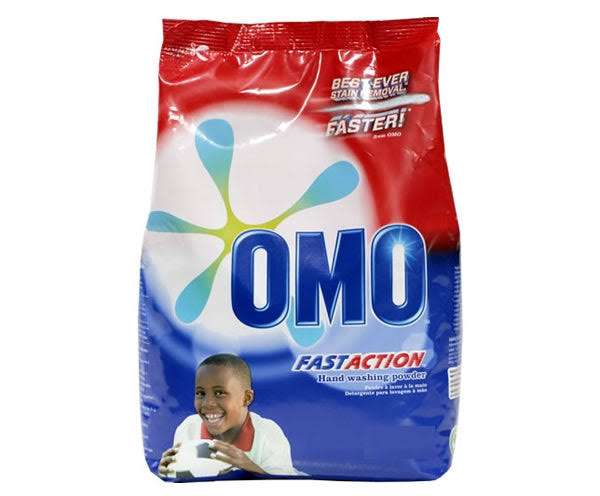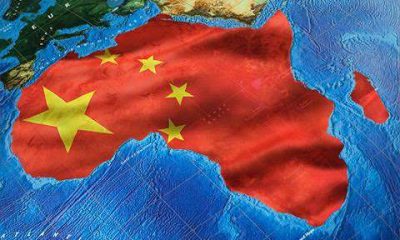Brands
Sunset for OMO, Lux, other iconic brands

By AYOOLA OLAOLUWA
One by one, legacy and iconic brands are daily disappearing from stores and homes of many Nigerians, who once had fond memories of them.
Gone are the days when popular brands, such as Omo and Elephant detergents; Nescao, Vitalo and Pronto Cocoa drinks; Aquafresh, Maclean, Close Up and Dentoclean toothpastes; Okin, Nasco and Oxford biscuits; Ginger Ale, Gold Spot, Tandi Guarana and Dr. Pepper soft drinks; Venus body cream; Shield deodorant; Lux, Joy and Cussons Imperial leather; Trebor Peppermints; Maggi, Royco and Dawa Dawa seasoning cubes; Parazone bleach; Rainbow and Cocosheen hair care products and many other iconic brands dominated homes and shelves of neighbourhood and super stores.
They had largely been replaced by newer brands like Waw, Ariel, Magik, Viva Plus and Good Mama detergents; Bigi,and Lacazera soft drinks; Tasty Chicken, Dangote, Mamador, Gino and Onga seasoning cubes; Colgate, Herbal, Oral B and My My toothpastes; Happy Happy, Cream Crackers, Haansbro, Pure Bliss and McVities biscuits, as well as Jik and Hypo bleach, among many other relatively newer products that birthed in the country in the late 90s and 2000s.
The gradual collapse and disappearance of these iconic products from homes did not come as a surprise, as many saw it coming.
For instance, the economic crisis of the late 80s and early 90s, which affected many manufacturing concerns, as well as the opening of the nation’s borders to massive importation of foreign goods, sowed the seed for the collapse of legacy companies and their iconic products.
Their slow but sure demise was cemented by the establishment of many modern and efficient Chinese, Lebanese, Korean, American and Nigerian owned companies, who daily churn out cheaper and market friendly goods to the ever bargain-looking consuming public.
By the last count, many legacy companies are either dead and out of circulation or are at the verge of folding up owing to the stiff competition from their younger but more aggressive competitors.
On March 17, 2023, the management of one of Nigeria’s struggling manufacturing giants, Unilever Nigeria Plc, announced to a shocked nation that they were stopping the production of the legendary OMO, Sunlight and Lux home care brands, blaming the decision on its inability to sustain its operations in Nigeria.
“We’re the longest-serving manufacturing company in the country, marking 100 years in Nigeria in 2023.
“We are exiting the Home Care and Skin Cleansing categories to concentrate on higher growth opportunities.
“The exit of these two categories over 2023 will boost the vision to make Unilever Nigeria great, building on the impressive progress made in other key aspects of the business, and is envisaged to result in overall improvement in profitability, growth and a more sustainable Unilever Nigeria Plc business.
“The company will in due course review the optimal treatment of redundant resources and assets, in accordance with due process”, Unilever had stated in the statement, thus pulling the plugs on the three ailing iconic products.
Formerly Lever Brothers, Unilever had begun trading in Nigeria in 1923, but introduced the OMO (an acronym for Old Mother Owl) brand into the market in 1960.
The product was being imported from the United Kingdom until 1964 when the company commissioned a factory in Lagos to manufacture the popular laundry brand.
Despite stiff competition from imported brands, Omo Detergent remained the darling of many Nigerian housewives and laundry outlets, which prompted Unilever to open another production facility in Agbara in Ogun State in 1982.
While Sunlight detergent was also popular, it could not come close to OMO standing on Nigerians scale of preference.
On the other hand, another brand of Unilever, which is been rested, Lux, had been serving millions of customers, especially women, who value their beauty and sweet smell since 1925 when it was introduced in the country.
The euphoria was, however, cut short with the sacking of the civilian administration of former President Shehu Shagari by a military junta led by Major General Muhammadu Buhari (retired), whose two-year reign distorted the nation’s already struggling economy.
Though Buhari left power in 1985, and was replaced by another military regime, until May 29, 1999, when power was handed over to the civilians, the seeds for the collapse and eventual death of many legacy companies had already been planted.
Apart from Nestle Nigeria, which is relatively doing well and holding its grounds against new entrants, like Procter and Gamble, other legacy companies like Patterson Zochonis (PZ), Michelin, Dunlop, Cadbury, Unilever, Vono Foams, Nasco Industry and many others are either dead, on the verge of dying or not doing too well.
According to Business Hallmark findings, the most important factor for the failures of these legacy firms and their iconic brands could be traced to the breaking of their monopoly of the Nigerian consumer market by new generation producers who churn out cheaper, yet more efficient products that is affordable to many consumers, especially in the middle and low income classes.
The millennial and Generation Z firms have basically used two major weapons, pricing and mini pack products to push the legacy firms out of the market.
According to BH survey, millennial and Generation Z products, such as Good Mama, Viva Plus, Ariel and Magik are relatively cheaper and more affordable.
While a 1kg pack of Good Mama detergent goes for between N820 and N900, depending on the market and locality, the same size of Omo and Sunlight detergents before they were rested was selling for between N1,200 to N1,400.
The new entrants also made huge inroads into their older competitors market with the introduction of mini satchet so that consumers, who are not buoyant enough to buy their jumbo packs will be able to afford the mini packs.
BH findings revealed that when detergents in mini parks were first introduced into some years back, a 100g pack sold for N50, while the smaller 25g pack sold for N20 to N25.
Today, the cheaper brands sell for between N120 and N250 per 100g, while premium brands by legacy companies start from N170 upward.
Though, legacy firms like PZ, Unilever and Nestle tried to ward off the competition by introducing their own mini packs into the market, the intervention came a little too late.
Apart from the taste of Nigerians having largely changed, as a result of tasting other newly introduced goods, their lower prices have also endeared them to consumers hearts in spite of billions of naira big firms spend on advertisements to woo them over.
Speaking on the development, a consumer market analyst, Bimpe Olubi, said the coming on board of alternative companies seems to have distorted the market.
“Many of us saw this coming. No single product has monopoly of the market anymore as many medium and micro enterprises coming on board are churning out cheaper, but more efficient products that are affordable to many people, especially in rural areas, where low income and poor Nigerians, who are in the majority, reside.
“Let us not also forget the lifecycle of a product. For example, a popular milk brand, which I will not name, is on the same trajectory.
“It refused to rebrand and repackage its products years ago; now, it is struggling to meet the niche market it dominated a decade ago.
“However, it is not all gloomy, as the influx of alternative firms and products has blessed the economy by creating more jobs. How many people would a company employ, compared to many companies?”, Olubi rhetorically asked.
On why alternative companies are able to cut down on production cost, which make their products to be cheaper, Olubi traced it to several factors, especially newer technologies and a much smaller workforce.
“Artificial intelligence is changing the face of manufacturing all over the world, Nigeria included. What as many as 100 people do in the past, just two people can do it with the help of machines.
“I visited the Dangote Refinery, which is under construction in January and was shocked with what I found.
“The refinery comes 80% automated. What this means is that there won’t be need for a huge labour force, which normally require huge resources to maintain.
“No need to pay huge salaries and allowances, such as leave bonus, inconvenience and the rest. A machine will do that without asking for a thank you, not to talk of being remunerated
Hide original message
“For instance, the escalators at Dangote Refinery were not manned during my visit to the complex. They were voice activated.
“Our escorts just gave them orders, ‘2nd Floor’, ‘5th Floor’ or 3rd Floor, and the lifts just responded. I only saw this in films before the visit.
“Likewise, most products, both raw materials and finished goods at the refinery are being piped directly to the plant or outside it.
“What this means is that there won’t be much need for fuel tankers. Crude oil comes directly from the creeks though complex pipelines and also leave the plant through another complex pipeline grid directly to oil depots in Apapa, Orile and Igando, as well as platforms on the high sea, where ocean going tankers berth to load.
“This is what is happening in the manufacturing sector. Factories are now more compact, don’t have bloated work forces, rely more on automated or semi-automated plants and have their own independent power plants to cut down on cost.
“It is unfortunate that most of these legacy firms, apart from Nestle and a few others, still operate like government agencies.
“Their managements earn stupendous wages and act like demi gods. I once visited a Chinese owned steel door manufacturing plant in Oregun where I saw the owner (chairman) driving a forklift to move some goods just brought in from the port.
“This Chinese company is valued at $3.7billion. How many Nigerian CEOs can do that? I know of many, who have people just employed to carry only their shoes and bags. Meanwhile, the carriers are paid from the companies vaults”, she disclosed.









